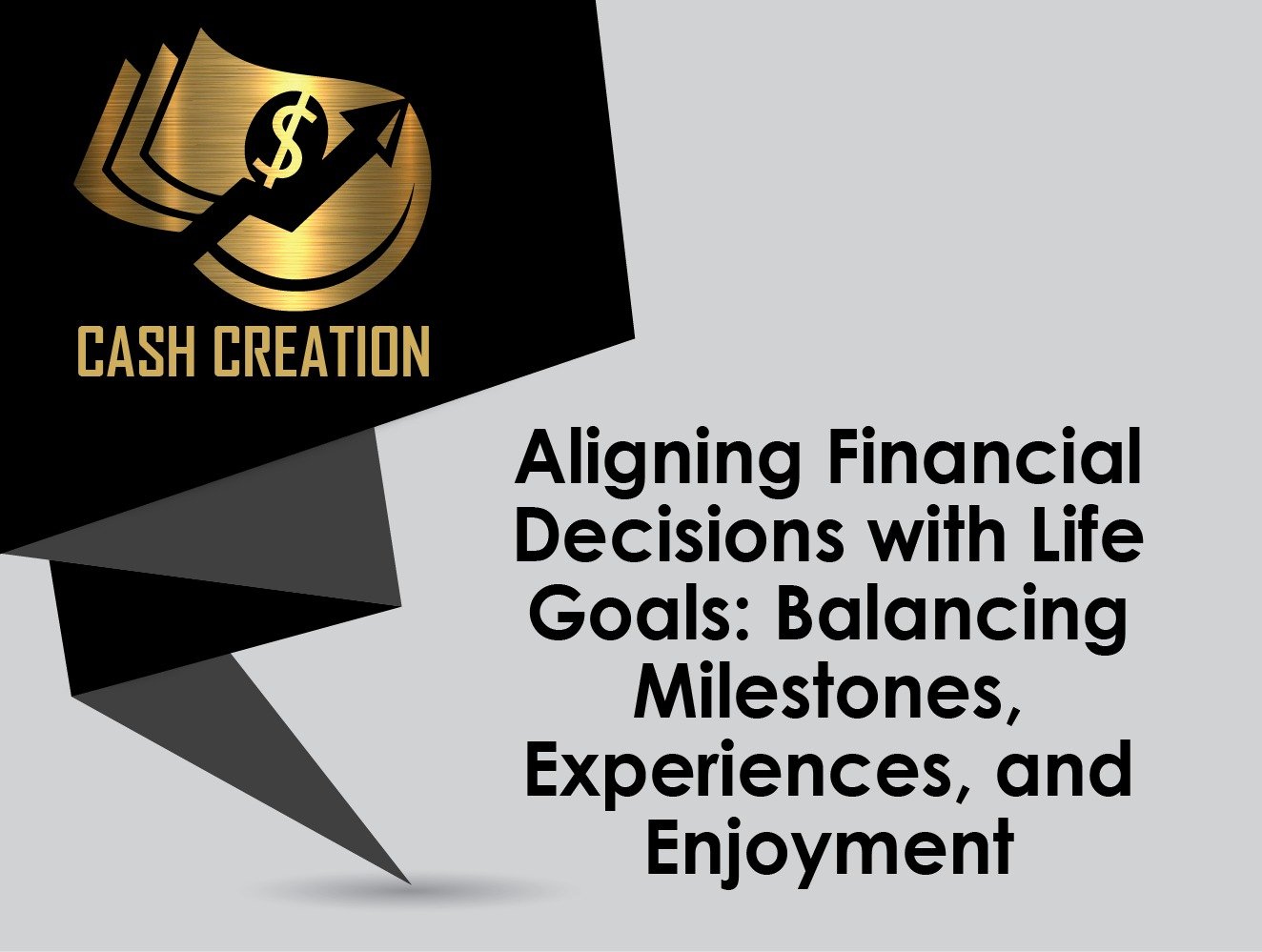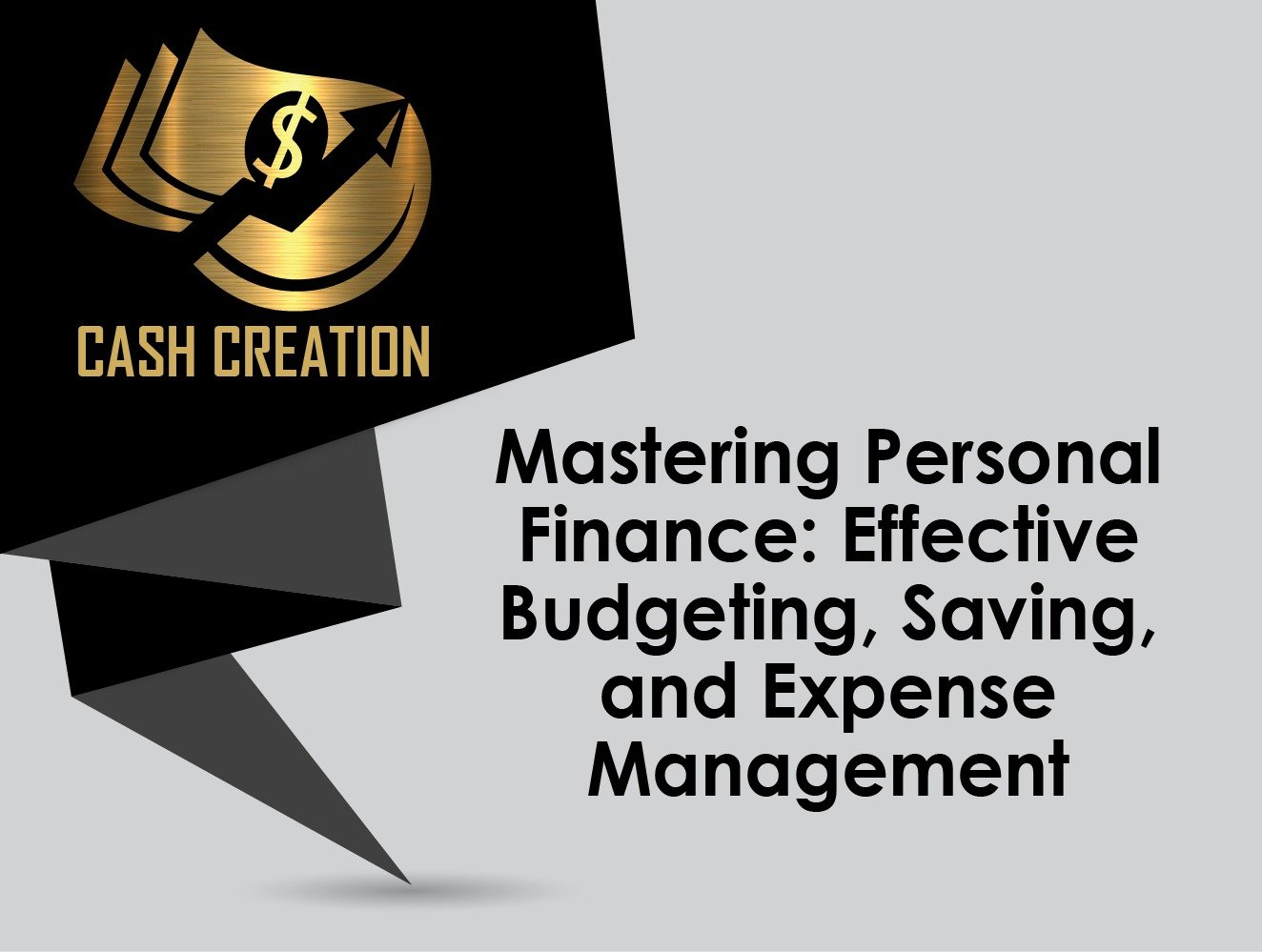Setting clear goals, controlling spending and conserving, and ensuring you enjoy life along the way can help you negotiate your financial path while working towards your life objectives. Including personal goals with financial planning will result in a safe and happy life. In this blog, we’ll discuss how to match your financial decisions with your life objectives, create meaningful financial benchmarks, balance spending on experiences with saving for the future, and make sure you’re not just earning but also savoring life.
Aligning Financial Decisions with Life Goals
1. Define Your Life Goals
Clearly defining your life objectives will help you match your money to them. These could be long-term goals like retiring or financing a child’s education or short-term ones like purchasing a house or planning a trip. Consider your priorities and values to find out what is important to you.
2. Create a Financial Plan
Create an extensive budget that outlines the steps you will take to attain your objectives after they have been established. The following should be incorporated into this strategy:
- Budgeting: Develop a budget consistent with your objectives, ensuring that you allocate funds to investments and savings that are conducive to your aspirations.
- Debt Management: Create a plan for managing and reducing debt, as high-interest debt has the potential to impede your financial progress.
- Savings and Investments: Determine the amount of savings and investments required to achieve your objectives. This may entail establishing investment vehicles or savings accounts specifically designed to achieve each objective.
3. Set Priorities and Timeframes
Sort your priorities according to relevance and the period needed to reach them. Long-term objectives might entail slow development, but short-term goals need more immediate attention. Change your financial strategy to fit shifting priorities and way of life.
4. Regularly Review and Adjust
Review your financial plan often to ensure you are moving towards your objectives. Financial and personal conditions vary, so your strategy must be changed as well. This might call for changing your savings goals, adjusting your budget, or looking at fresh investment prospects.
Financial Milestones by Age
1. In Your 20s: Building a Strong Foundation
- Emergency Fund: Save a minimum of three to six months’ worth of living expenses in an account that is readily accessible.
- Debt Reduction: Concentrate on repaying high-interest debt, including credit card balances and student loans.
- Start Saving for Retirement: Start contributing to retirement accounts such as a 401(k) or IRA, even if it is a modest quantity. In general, compound interest is more advantageous when initiated earlier.
2. In Your 30s: Establishing and Growing
- Home Purchase: If purchasing a property is a goal, focus on saving for a down payment and maintaining a high credit score to secure favorable mortgage terms.
- Increase Retirement Contributions: Contributions to retirement accounts should be increased in tandem with income growth.
- Insurance: Ensure you have sufficient health, life, and disability insurance to safeguard your financial security and family.
3. In Your 40s: Focused Growth and Planning
- Maximize Savings: Strive to optimize contributions to retirement accounts and other investment vehicles. Exploring different investment options to achieve a more balanced risk and return profile may be wise.
- Education Savings: Consider saving for your children’s education using accounts such as 529 plans.
- Estate Planning: Take the necessary steps to plan for your estate, such as creating a will and exploring various estate planning options, such as trusts.
4. In Your 50s: Pre-Retirement Preparation
- Catch-Up Contributions: Consider utilizing catch-up contributions to retirement accounts if you’re 50 or older.
- Retirement Planning: Refine your retirement plans by accurately estimating your expenses and income requirements. Consider scheduling a meeting with a financial advisor to assess your readiness for retirement.
- Debt Reduction: To approach retirement with enhanced financial independence, strive to minimize or eliminate any outstanding debt.
5. In Your 60s and Beyond: Retirement and Legacy
- Retirement Transition: Create a comprehensive retirement transition plan outlining your approach to utilizing your savings and effectively managing your investments.
- Health Care Planning: Consider incorporating a strategy to account for health care expenses, including the potential need for long-term care insurance.
- Legacy Planning: Consider your long-term objectives, such as making charitable donations or ensuring the smooth transfer of assets to your beneficiaries, and complete the necessary steps to establish your estate plan.
Balancing Spending on Experiences Versus Saving for the Future
1. Create a Balanced Budget
A balanced budget enables you to fully embrace life’s experiences while setting aside funds for the future. Budgeting your income wisely and setting aside funds for enjoyable activities like vacations, hobbies, savings, and investments are essential. Ensure sufficient funds are allocated to both areas to achieve a well-rounded lifestyle.
2. Prioritize Experiences
Experiences often bring more long-term satisfaction than material possessions. Discover the experiences that hold the most tremendous significance for you and carefully strategize how to incorporate them into your financial plan. These activities could encompass travel, hobbies, or special events. By effectively managing your finances, you can ensure that you can enjoy these experiences without compromising your long-term financial objectives.
3. Use the 50/30/20 Rule
The 50/30/20 rule is an easy way to make sure that your spending and savings are equal:
- 50% for Needs: Ensure that most of your income covers necessary expenses, including housing, utilities, and groceries.
- 30% for Wants: Allocate 30% of your income towards discretionary spending, encompassing experiences and lifestyle choices.
- 20% for Savings and Debt Repayment: It is advisable to allocate 20% of your income towards savings, investments, and reducing debt.
4. Plan for Large Purchases
Regarding significant purchases or experiences, planning and setting aside funds specifically for them is always wise. Planning for a vacation, major purchase, or special event allows you to fully enjoy these experiences without compromising your long-term savings objectives.
Ensuring You’re Earning and Enjoying Life
1. Set Aside Time for Self-Care
Overall well-being depends on one’s ability to balance work and life. Schedule time for leisure activities, hobbies, and self-care that makes one happy. This improves one’s quality of life and maintains one’s drive and output in financial activities.
2. Find Work-Life Balance
Make sure your ideals and life objectives complement your line of work. Look for chances for personal fulfillment and balance instead of concentrating only on financial benefit. A successful profession may result in an interesting and rewarding life.
3. Practice Mindful Spending
See how you spend your money. Analyze whether activities and purchases improve your life or whether impulse drives them. Conscious spending lets you concentrate on what makes you happy and fulfilled.
4. Celebrate Milestones
Celebrate personal and financial goals to keep inspired and acknowledge your success. Whether it’s a memorable adventure or a good savings target, appreciating these events increases your general happiness and contentment.
Conclusion
Taking a strategic approach to your financial decisions means carefully considering your life goals, finding ways to control your spending and saving, and ensuring you find joy. One can attain a gratifying and prosperous existence by establishing well-defined objectives, developing a meticulously organized financial strategy, and carefully managing immediate expenditures alongside future savings. Consistently evaluate and adapt your plan to accommodate shifts in your goals and circumstances while consistently placing self-care and enjoyment at the forefront of your financial journey. By making thoughtful decisions and taking a strategic approach, you can attain financial prosperity while embracing the fullness of life.



